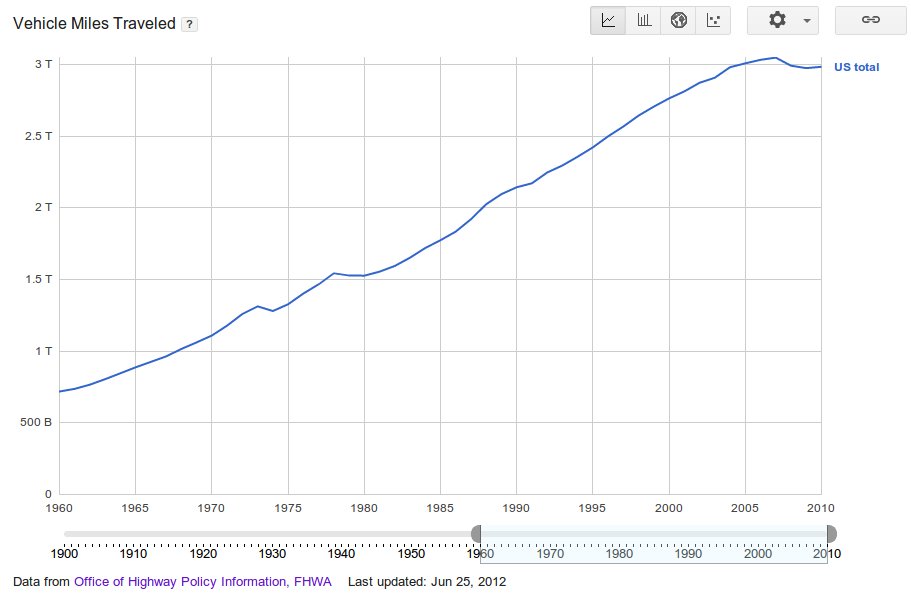In 02005, Daniel K. Simon, believing the effects of Peak Oil to be close at hand, wrote,
The U.S Department of Transportation Bureau of Transportation Statistics (www.bts.gov) will report a lower number of total highway vehicle miles traveled in 2010 than in 2005.
His Challenger, Glen Raphael, responded,
“Five years is too short to expect much change in this area – we may not even have peaked by then. But once we do peak, it won’t be much of a problem.”
The two agreed to $400 stakes for the wager; each put in $200.
Adjudication of this Bet proved interesting: Vehicle Miles Traveled in the US have followed a surprising regular upward curve, for as long as they’ve been tabulated, with only a few deviations from the trend. One of those deviations began in 02008. Why? While the nature of peak oil is such that it will be hard to identify until afterwards, the timing of the recent dip in VMT seems to implicate the recent economic recession more than anything else. Regardless, the Bet is about the numbers, not causation or correlations.
VMT was 3.005 trillion miles in 02005 and it climbed to 3.049 trillion in 02007. The following year, 02008, was the first since 01980 to be lower than the one before it. The drop that one year was more than the growth of the previous two and 02009 continued the downward trend. 02010 – the decisive year for our purposes – showed signs of recovery and according to preliminary reports looked to have just barely surpassed 02005’s level. Once the final official tally was released though, it came to 2.9851 trillion miles: below 02005’s level. Despite a few dips in the 01970s, 02005-02010 was the first 5 year period with a net decrease in VMT since WWII.
Winner: Daniel K. Simon, Predictor
The winnings of this Bet ($400 plus half the accrued interest) will go to the Post Carbon Institute.
